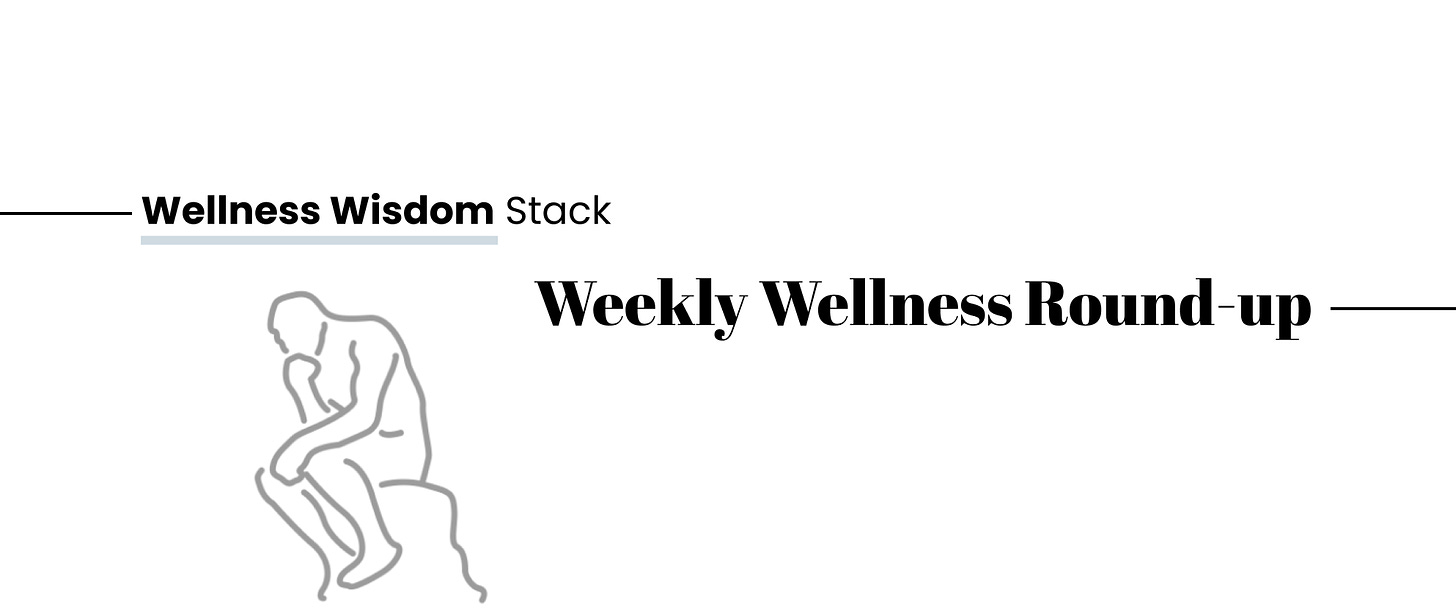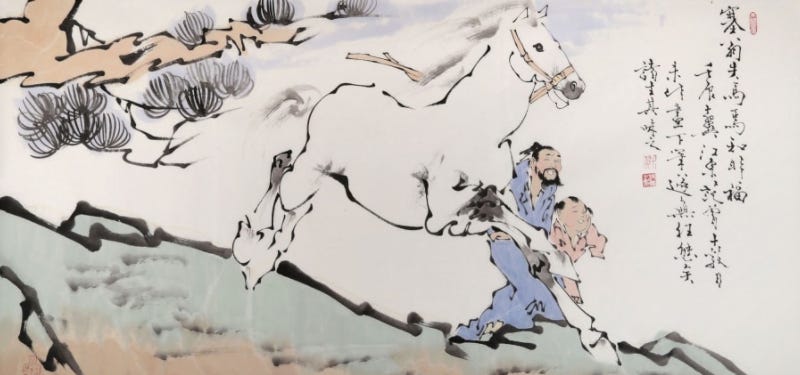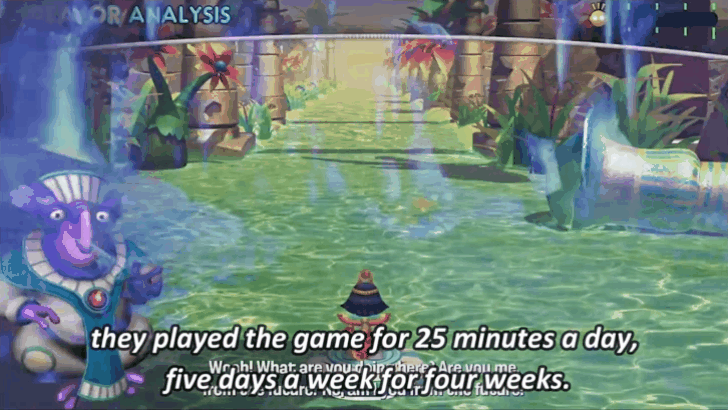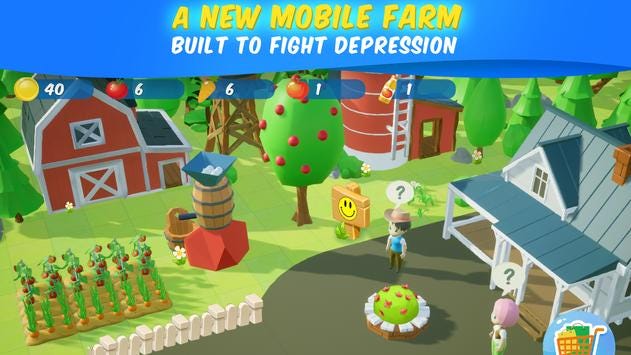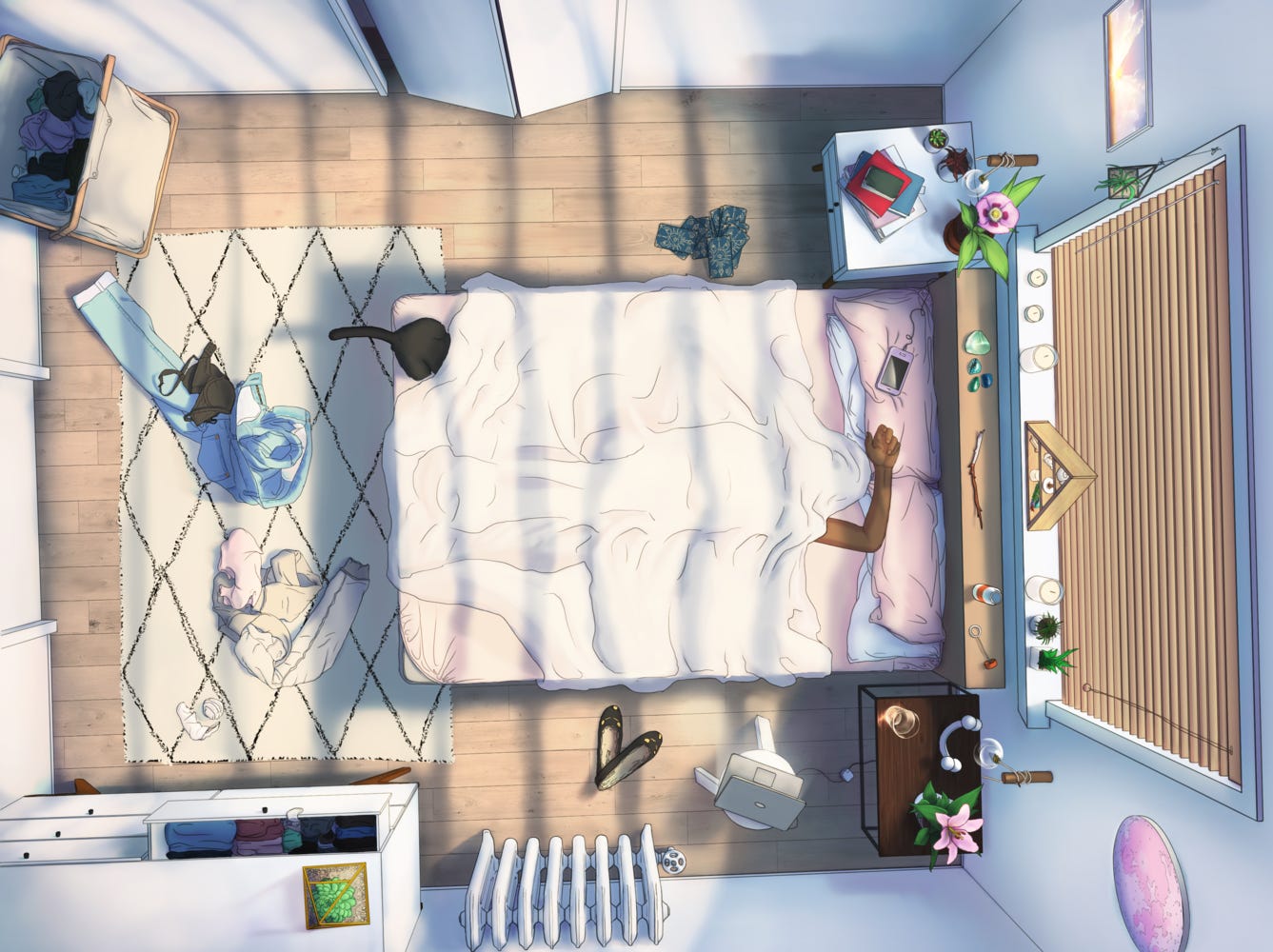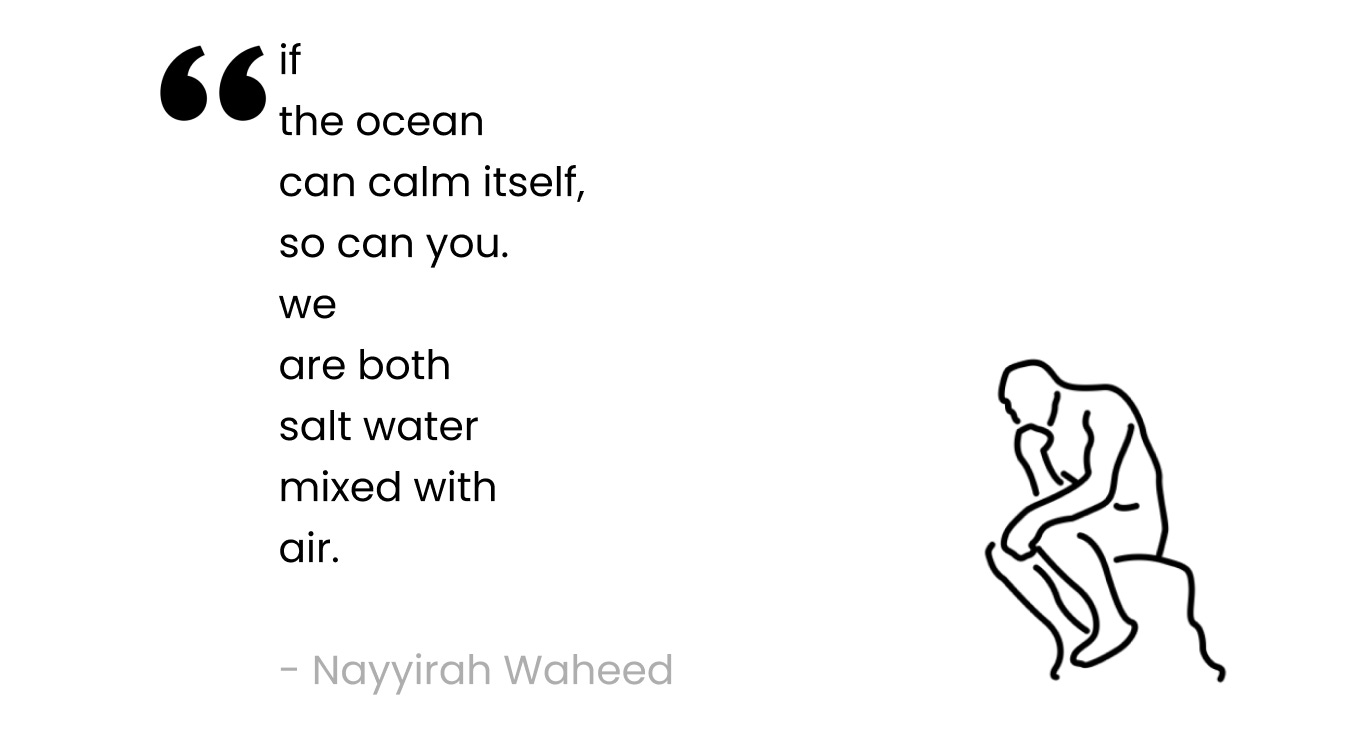Welcome to the 17th volume of Wellness Wisdom, a newsletter covering the mental health tech space + best resources to support your internal space.
This newsletter is free because I believe everyone deserves to have access to wellness resources.
If you want to support this publication, join me down the rabbit hole🔮🐇.
Morning amazing human! ☀️
Recently, i’ve been spending a lot of time with my Dad. On Wednesdays during lunch, he’ll drive up to San Francisco and bring dumplings + meat pies (北京燒餅). We’ll sprawl out on a picnic blanket at the nearby park and just chat about life between mouthfuls of carbohydrate bliss.
It wasn’t always this idyllic, as I was quite the rebellious teenager growing up. But especially recently, I’ve been more intentional with my time. I’ve also noticed that my dad has become more intentional with me - using our meetings as a medium to pass on life lessons. Lately, he’s been focused on publishing research in philosophical semantics - the study of language, and how their compositions shape our minds + world views. Naturally, his life lessons have been colored by this aperture.
Here are some tidbits that I’d love to share with you all:
Linguistics can shed light onto historic values and attitudes of a culture.
For example: In mandarin, 危机 (Wéi jī) means crisis. The same "jī" that is in crisis, is also in opportunity 机会 (Jī huì). A personal crisis is just an opportunity to be broken open and grow. 开心 (Kai Xin) means excited. Its literal translation in English is “Open Heart”.
What are some of your favorite linguistic revelations? I’ll share them in the next newsletter
Philosophers, like Plato and Aristotle, believed that the purpose of life was to achieve Eudaimonia, not happiness.
Eudaimonia is the deep sense of satisfaction one gets when one grows as a human being.
A kind of well-being that comes from living a life of continuous self-development. The word encourages us to trust that many of life’s most worthwhile projects will not “feel good”.
Building a venture or growing as a person can be painful, yet are worth pursuing nevertheless as we strive to do justice to our full human potential. Instead of pursuing happiness, pursue Eudaimonia.
Labeling something as “Good” or “Bad” ignores the shades of grey in between.
A “Good” event could become misfortune. A “Bad” event could be the greatest gift. In fact, to neither be aroused when something great happens or flabbergasted when something bad happens, opens up the peaceful pursuit of the “middle way”.
Pain becomes suffering, when we try to reject reality. It’s much easier to move fluidly with life as it unravels, accepting its fruits and adversities. A parable to demonstrate this point:
"塞翁失马,焉知非福."
A farmer owned a horse. One day, the horse ran away. The neighbors exclaimed, “Your horse ran away! What terrible luck!” The farmer replied, “Maybe. We will see.”
A few days later, the horse returned bringing with it a pack of wild horses. The neighbors exclaimed, “Your horse returned and brought several horses home with him! What great luck!” The farmer replied, “Maybe. We will see.”
A week later, the farmer’s son was attempting to tame the wild hoses and a horse kicked him, breaking the son's leg. The neighbors exclaimed, “Your son broke his leg! What terrible luck!” The farmer replied, “Maybe. We will see.”
A few weeks later, soldiers marched through town recruiting all of the young men for the army. They did not take the farmer’s son since he only had one working leg. The neighbors exclaimed, “Your boy was spared. What great luck!” The farmer replied, “Maybe. We will see.”
☝️one take
Imagine if doctors prescribed you video games to improve your mental health?
Today’s one take features games that help us with our emotional health. Scientific studies show that playing video games can change how our brains perform, and even their structure. As a virtually simulated bubble, they enable us to exercise skills that can then be brought in our real lives.
Last week EndeavorRX byAkilibecame thefirst-ever FDA-approved prescription video game!
Designed by a team of neuroscientists and tech designers, the game is used to treat children aged 8 to 12 with ADHD. Players steer a flying craft through an obstacle course, avoiding fire pits or mines, while collecting targets. Using algorithms, the game adapts in real-time to personalize for difficulty level. Akili eventually hopes to develop video games that could treat a range of mental health disorders, from depression to Alzheimer’s.
Goodville is another clinically tested app that seeks to treat and prevent the early stages of depression. Founded in 2019, the company recently raised a small pre-seed of $100K to continue development. Though similar to Farmville, the game has a few aims that are distinctive to treating depression:
Talking to neighbors for stress relief
Offering crops and fresh goods to neighbors and friends
Developing exciting stories to help build confidence and self-esteem
On the other side of the spectrum, #SelfCare by TRU LUV is a “game” with an ethos that runs counter to gamification. TRU LUV hopes to mitigate the anxiety producing effects of traditional video games by producing games that help you feel calm and connected.. because dying in games is stressful, yo.
In #SelfCare, the premise is to literally chill TF out in bed all day.Surely, a universal fantasy and counterpoint to the societal pressures of constant productivity.
Unlike traditional mobile video games that up the challenge as you advance, the game begins disorderly and awkward, but becomes more orderly and satisfying as you progress in your self-care routine.
The more time you spend on #SelfCare, the more tasks and options you unlock to expand your self-care practice. I.e. you can awaken your dozing cat, do a tarot card reading, or water a plant.
Even typing that just made me feel more relaxed.
Another VR game called DEEP is taking self-care to another level (pun intended, ha…). As a therapeutic biofeedback video game, it’s leveraging an expensive technique that’s been around for decades and making it reasonably priced and interesting.
Biofeedback is a self‐regulation technique, first developed in the 1970s, that displays to folks in real-time how modifying physique capabilities, like respiration, can have an effect on their psychological state. Lately, the improved accuracy of wearable sensors and the maturation of virtual-reality platforms has enriched biofeedback’s accessibility and lowered its cost.
After donning ones Oculus rift + a special handheld controller, DEEP is controlled by breathing as you explore beautiful and mysterious undersea worlds. Along the way, the game teaches you yogic breathing techniques that can help relieve stress.
I’m super inspired by the premise of video games, whether on our phones or headsets, becoming the next frontier for developing human mental fortitude. In the absence of means or access to a mental health professional, technology has the potential to alleviate our dependencies on the middle man (office leasers / in-person therapists) and bring therapeutic benefit straight to the consumer.
🗞 news in the m-health tech space
No major fund raises on my radar this past week but thought this was dope:
Kevin Love donates $500,000 to establish chair at UCLA psychology department for mental health
The 31-year-old first opened up about his anxiety and panic attacks in 2018, just one week after San Antonio Spurs guard DeMar DeRozan shared his similar experiences.
📖 reads
James Beshara (Angel Investor) on Mental Wealth. A great read:
Estimates say that 83% of us will be hit with a mental health crisis in our lives, we can all make the choices to invest wisely in this area to improve our ‘mental durability’ to deal with it properly.
We might benefit from approaching mental health like we invest in anything else in our lives (finances, relationships, careers, physical health, etc), where one builds wealth in this area by continuous, conscious investment.
There are five foundations towards ‘mental wealth’ — sleep, diet, exercise, stress management, and exogenous compounds (anything from coffee to alcohol to prescription medication).
David Brook’s wrote an eye-opening essay on The Moral Peril of Meritocracy
You happened to have graduated into a global emergency that has interrupted everything. That whole career-track thing you’ve been worrying about? Fundamentally interrupted. Don’t see this as a void; see it as a permission slip.
The theory of maximum taste says that each person’s mind is defined by its upper limit—the best that it habitually consumes and is capable of consuming.
[As we age], our maximum taste shrinks. Have you ever noticed that 70 percent of the people you know are more boring at 30 than they were at 20?
But then a pandemic hits, and suddenly you have time to read Henry James and Marilynne Robinson, to really look at Rembrandt and Rothko. Suddenly you feel your consciousness expanding once again.
🎶 watch
Why We’re Fated to be Lonely by The School of Life. If you’re feeling lonely, you’re not alone:
“Loneliness is a tax we have to pay toatone for a certain complexity of mind.”
🧘♀️ tools/activities
Yoga for Black Lives Matter movement taught by Channing Hixon
An amazing visualization on the history of philosophy showing the positive/negative connections between key ideas of philosophers across the centuries.
My Therapy Cards is the 1st self-exploration card deck created by a black female psychologist for other women of color.
Mindful productivity framework that summarizes Ness Labs concepts like the PARI system Plus, Minus, Next system
food for 💭
Be well ❤️,
Patricia
Thank you for being part of The Wellness Wisdom Stack today. I have a full-time job as a product manager but curate this newsletter in my free time as a labor of love.
This newsletter is free because I believe everyone deserves to have access to wellness resources.
If you want to support this publication, join me down the rabbit hole🔮🐇.
Who’s behind this newsletter?
Patricia is a curious human, product manager, virtual librarian, and carer of souls. Reach me on Twitter or LinkedIn.



